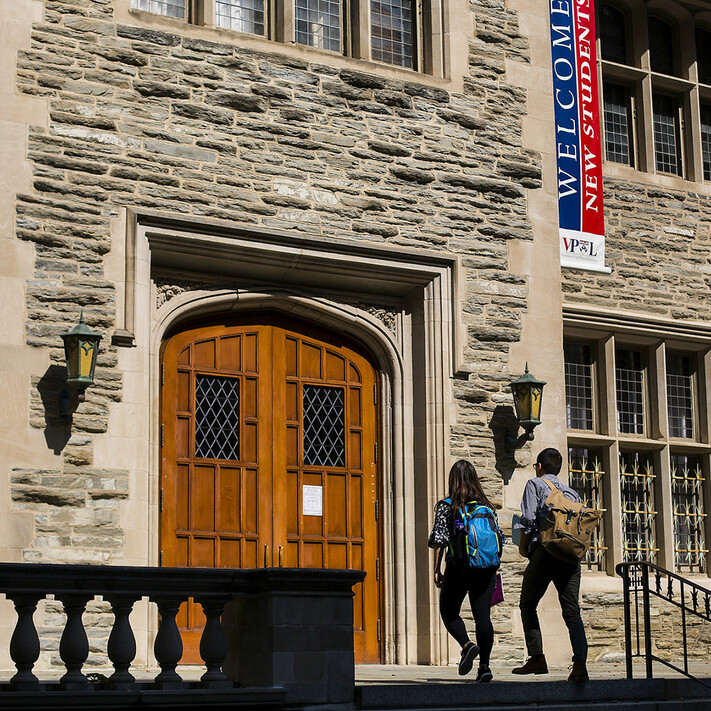Terms of Reference
Office of the Ombuds
Introduction
These Terms of Reference set forth the terms under which the Office of the Ombuds serves the Penn community. They are informed by the best practices articulated by the International Ombuds Association (IOA) in its Code of Ethics and Standards of Practice, available on the IOA website in English, Chinese, French, Italian, Japanese, Korean, Brazilian Portuguese, Romanian, Russian, Spanish, Thai, and Amharic.

Scope of Services
Established in 1971 at the recommendation of the Task Force on University Governance, Penn’s Office of the Ombuds is one of the oldest in the United States. Ombuds staff help visitors find ways to surface and resolve their concerns. This includes assisting them to: explore options; gather information; identify pertinent University polices and resources; and identify external resources. The Office of the Ombuds is also able to provide coaching; host informal mediation and facilitated conversations; and engage in shuttle diplomacy.
The Office of the Ombuds will not and does not have the authority to advocate for any individual, office or result; participate in informal hearings or grievance processes; serve as an agent of the University to receive notice of any claims or complaints against the University; provide legal advice; provide psychological counseling; conduct formal investigations; make rulings; set or modify policies or procedures; or impose resolutions of disputes.
The office operates independently of the University hierarchy and reports only to the President or a designee from the President’s Center, insulating it from the risk of undue influence by other members of the University hierarchy. The Office of the Ombuds, while maintaining the confidentiality of communications with its visitors, reports on trends and systemic issues identified through its work to members in the University hierarchy as appropriate.
Neither the Office of the Ombuds nor its staff serve as an agent of the University to receive notice of any claims or complaints against the University. If a visitor wishes to make a formal record or put the University “on notice” of a claim, that is to make the University formally aware of a particular matter, Office of the Ombuds staff can provide information to a visitor on how to do so.
Standards of Practice
Visitor engagement with the Office of the Ombuds is entirely voluntary. No one is required to use this resource, but those who do use it will be understood to have agreed to abide by the principles upon which the Office of the Ombuds was established and operates (confidentiality, impartiality, informality, and independence, as set forth below). As a condition to access the services of the Office of the Ombuds, visitors understand and agree that they will not call anyone of the Office of the Ombuds staff to testify or produce documents with respect to confidential communications in any formal, legal, administrative, or other proceeding.
The Office of the Ombuds conducts its business in accordance with the following standards:
Confidentiality: The Office of the Ombuds is a confidential resource available to all members of the Penn community. Confidentiality is essential to the effective work of the Office and is a key principle that undergirds our work. “Confidentiality” means that staff of the Office of the Ombuds will not disclose the identity of or any information that is shared by its visitors unless given the permission to do so and the Ombuds determines that it is appropriate to do so. The Ombuds may also disclose information when the Ombuds determines that failure to do so would create an imminent risk of serious harm. The decision to waive confidentiality belongs solely to the Office of the Ombuds.
Informality: The Office of the Ombuds operates informally. We do not keep the names of individuals who visit the office or any permanent records of documents or materials with confidential information, and we keep no records other than statistical information that contains no confidential information. The Office of the Ombuds does not investigate and has no authority to adjudicate matters. Rather, we assist with the resolution of issues by facilitating dialogue and providing informal mediation.
Impartiality: The Office of the Ombuds neither takes a side in a dispute, nor advocates for an individual, a particular point of view, office, department, school, center, program, or any other party. Our role is to serve as an objective third party who is available to assist with resolution of that matter brought to the Office.
Independence: The Office of the Ombuds operates independent of the University hierarchy and reports only to the President or a designee from the President’s Center, so that it can avoid the risk of actual or perceived conflict of interest or undue influence by members of the University hierarchy.
IF YOU HAVE ANY QUESTIONS REGARDING OUR STANDARDS OF PRACTICE, PLEASE RAISE THEM AT THE OUTSET OF OUR CONSULTATION.
Address
113 Duhring Wing, 236 S. 34th St.
Philadelphia, PA 19104-6273
Phone
(215) 898-8261
Fax
(215) 573-7814
Email
Ombuds@upenn.edu